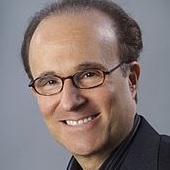John Kerry — The European Candidate?
Would John Kerry’s European connections influence his presidency?
August 27, 2004
In the 1962 film "The Manchurian Candidate," Communist agents "brainwash" a young American from a prominent political family and prepare him to run for the White House.
In the 2004 version of that movie, Evil Big Business is programming an American politician with presidential aspirations.
But forget those KGB agents from the old black-and-white movie and the Halliburton-type CEOs from the new Hollywood production. Isn't it those decadent and defeatist Europeans who should be depicted as the villain de jour — the real and present danger to American values and interests?
And according to Europhobic neoconservative pamphleteers in the United States who propagate this message, the Democratic Party's choice for president, John Kerry, should be exposed as — little surprise —The “European Candidate.”
After all, Kerry is the son of a U.S. diplomat who met his wife in France. He has spent his summer vacations in Europe, studied in Switzerland and can converse in French and German. His wife — herself a daughter of Portuguese parents — is also fluent in Italian, among several other languages.
On top of all that, John Kerry even has a French cousin who is an environmentalist activist and a past presidential candidate.
With all that evidence, one wonders whether the French intelligence service recruited Young John while he was digging in the beaches of Brittany in the summer of 1956?
Is Teresa Heinz Kerry his clandestine controller? Perhaps her by now famous "shove it" remark to a pesky conservative journalist was a secret code that was supposed to activate the European Candidate as he was beginning his race to the White House?
And will President Kerry pledge in his inaugural address that Americans shall pay any price, bear any burden and meet any hardship, in order to assure the ratification of a proposal close to Europeans' hearts — such as the Kyoto Treaty and the banning of bio-engineered food?
It is not surprising, then, that neoconservative commentators refer to Kerry's "French connections" and "Europhile mannerisms." They also accuse the Europeans of "meddling in this particular presidential election" by allegedly calling "for the defeat of an incumbent American president."
After returning during one of his frequent trips to Europe's Enemy Territory, one of these commentators reported to his readers that what he heard in Europe was that "Kerry must win, you see, so that Europe and America can be friends again."
Some pundits point to Kerry's vote in favor of authorizing President Bush to use military force against Iraq and his emphasis on the need for "staying the course."
They argue that his views on this central issue in the presidential campaign reflect differences with the current White House occupant primarily over style and methods — and not, as is the case with the Europeans, over substance.
But one doesn't have to have the political genius of famed strategists such as Karl Rove or James Carville to figure out that Kerry's vote on Iraq was part of a calculated — and morally questionable — strategy of hedging his political bets and of protecting himself in case Bush's political-military goals in Iraq would have been achieved.
And one also doesn't have to engage in complex "what if?" scenarios to assume that if John Kerry — or for that matter, Bill Clinton or Al Gore — had been occupying the White House after 9/11, the United States wouldn't have acted militarily on its own to oust Saddam Hussein from power.
More likely, under President Kerry, a more effective UN-led weapons inspection regime would have been applied in Iraq — as an integral part of an assertive U.S.-led multilateral strategy in dealing with the twin threats of terrorism and weapons of mass destruction.
The Europeans and NATO would have signed onto that kind of strategy — and instead of a costly transatlantic rift, the Europeans and Americans would have had to cope with occasional and manageable policy disagreements.
Read previous
Russia’s Newly Found "Soft Power"
August 26, 2004
